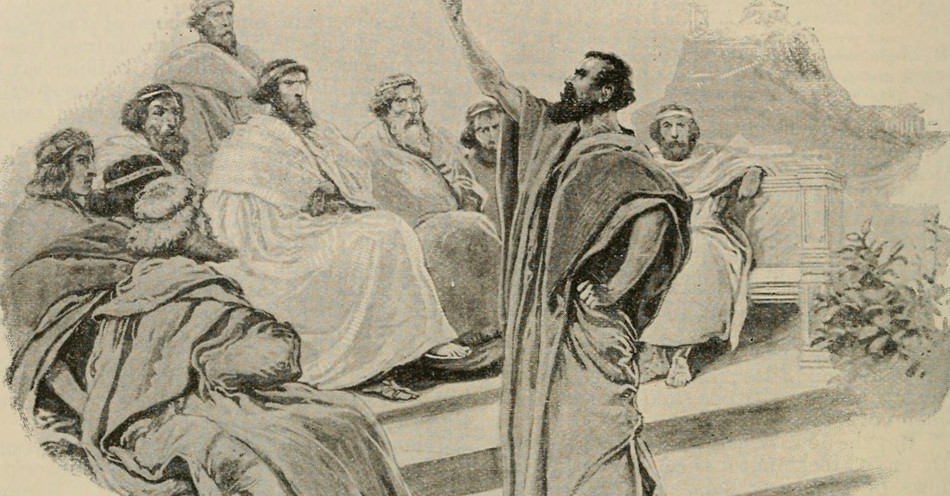"With the help of Silas, whom I regard as a faithful brother, I have written to you briefly, encouraging you and testifying that this is the true grace of God. Stand fast in it." (1 Peter 5:12)
Who was Silas in the Bible?
Silas was a prominent church member in Jerusalem, also called Silvanus. He and Judas, surnamed Barsabas, were chosen by the church there to accompany Paul and Barnabas on their return to Antioch from the council of the apostles and elders (Acts 15:22) as bearers of the decree adopted by the council. He assisted Paul there in his evangelistic labors and was also chosen by him to be his companion on his second missionary tour ( Acts 16:19-24). He is referred to in the epistles under the name of Silvanus ( 2 Corinthians 1:19; 1 Thessalonians 1:1; 2 Thessalonians 1:1; 1 Peter 5:12 ).
Silas was an Apostle of the Seventy, a disciple of Jesus Christ.
Silas was a respected figure in the original Church at Jerusalem, one of the “chief men among the brethren” (Acts 15:22). The Council of the Apostles was convened at Jerusalem in the year 51 to deal with the question of whether Gentile Christian converts should be required to observe the Mosaic Law. The Apostles sent a message with Paul and Barnabas to the Christians of Antioch, giving the decision of the Council that Christians of Gentile origin did not have to observe the prescriptions of the Mosaic Law.
Nonetheless, they were told that they must refrain from partaking in foods offered to idols, from things strangled and from blood, to refrain from fornication (Acts 15:20-29). Together with Saints Paul and Barnabas, the Council of the Apostles sent Saints Silas and Jude to explain the message in greater detail since they both were filled with the grace of the Holy Spirit. Saint Jude was later sent back to Jerusalem. Yet, Silas remained at Antioch and zealously assisted Saint Paul, the Apostle to the Gentiles, on his missionary journeys preaching the Gospel. They visited Syria, Cilicia, and Macedonia.
In the city of Philippi, they were accused of inciting unrest among the people, and for this, they were arrested, beaten with rods, and then thrown into prison. At midnight, when the saints were in prayer, there was suddenly a strong earthquake, their chains fell from them, and the prison doors opened. The prison guard, supposing that the prisoners had fled, wanted to kill himself but was stopped by the Apostle Paul. Then, he fell trembling at the feet of the saints and with faith accepted their preaching about Christ. He then led them out of the prison and took them to his own home, where he washed their wounds and was baptized together with all his household.
From Philippi, Paul and Silas proceeded on to the cities of Amphipolis, Apollonia, and Thessalonica. In each city, they made new converts to Christ and built up the Church.
At Corinth, the Apostle Silas was consecrated as bishop and worked many miracles and signs, and there he finished his life.
Bible Commentary on Silas
Silas, who was probably a Roman citizen (compare Acts 16:37), accompanied Paul during the greater part of his 2nd missionary journey (Acts 15-18). At the meeting of the Christian community under James at Jerusalem, which decided that circumcision should not be obligatory in the case of Gentile believers, Silas and Judas Barsabas were appointed along with Paul and Barnabas to convey to the churches in Antioch and Syria and Cilicia the epistle informing them of this decision. As "leading men among the brethren" at Jerusalem, and therefore more officially representative of the Jerusalem church than Paul and Barnabas, Silas and Judas were further commissioned to confirm the letter's contents by "word of mouth." On arrival at Antioch, the epistle was delivered, and Judas and Silas, "being themselves also prophets, exhorted the brethren with many words, and confirmed them." After their mission was thus completed, the four were "dismissed in peace from the brethren unto those that had sent them forth" (Revised Version), or "unto the apostles" (the King James Version) (Acts 15:22-33).
Silas in the International Standard Bible Encyclopedia
Sources:
Silas - OCA
Silas - Nave's Topical Bible
Christianity.com's editorial staff is a team of writers with a background in the Christian faith and writing experience. We work to create relevant, inspiring content for our audience and update timely articles as necessary.



